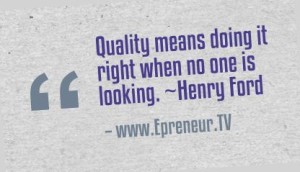 I took a look at some of the placement data we capture from our members, and it is clear that job seeker salaries are on the rise compared to a year ago. In fact, two-thirds of the placements reported by our members this year involve a salary of at least USD $80,000 annually, compared to 63% of placements a year ago. In each of the past two years, the single largest salary category is $100,000 and above. The growth in job seeker salaries is consistent with a candidate-short market; traditional laws of supply-and-demand are clearly at work.
I took a look at some of the placement data we capture from our members, and it is clear that job seeker salaries are on the rise compared to a year ago. In fact, two-thirds of the placements reported by our members this year involve a salary of at least USD $80,000 annually, compared to 63% of placements a year ago. In each of the past two years, the single largest salary category is $100,000 and above. The growth in job seeker salaries is consistent with a candidate-short market; traditional laws of supply-and-demand are clearly at work.
The highest salaries we have been seeing are in the chemical process and IT / hardware / software / electronics areas. Here is a sampling from the past four months:
- Plant Manager, chemical industry, $180,000
- Director of Operations, chemical industry, $175,000
- Business Systems Project Manager, food & beverage industry, $163,000
- IT Site Manager, food & beverage industry, $132,000
- Senior Performance Analyst, software industry, $127,000
- Senior Project Manager, oil/gas, drilling industry, $120,000
- Test Engineer, electronics & semi-conductor industry, $118,000
- Process Control Engineer, chemical industry, $110,000
- Production Engineer, chemical industry, $105,000
It is interesting to note that in the chemical process segment, we have had both an increase in salaries as well as a decrease in the number of total placements year-over-year. Members are anecdotally reporting that clients are still too slow to hire, in the mistaken belief that there is still widespread unemployment. There is still tremendous demand for candidates (chemical process jobs represent about 37% of the total jobs in our shared database), in spite of the recent decline in the price of crude oil. Candidates have an extremely short shelf-life and are able to command multiple offers. Counteroffers have also increased as companies are reluctant to lose high-value employees, knowing they may not easily find new talent.
There has been a modest increase (6%) in placement activity in the IT / hardware / software / electronics segment, and another modest increase (7%) in the manufacturing / mining / construction /supply chain segment. Jobs in the IT / hardware / software / electronics segment remain especially plentiful and account for approximately 20% of the total openings shared by NPAworldwide members.
Independent recruiters should be in a position to financially benefit due to the rise in job seeker salaries and the continued talent shortage.










